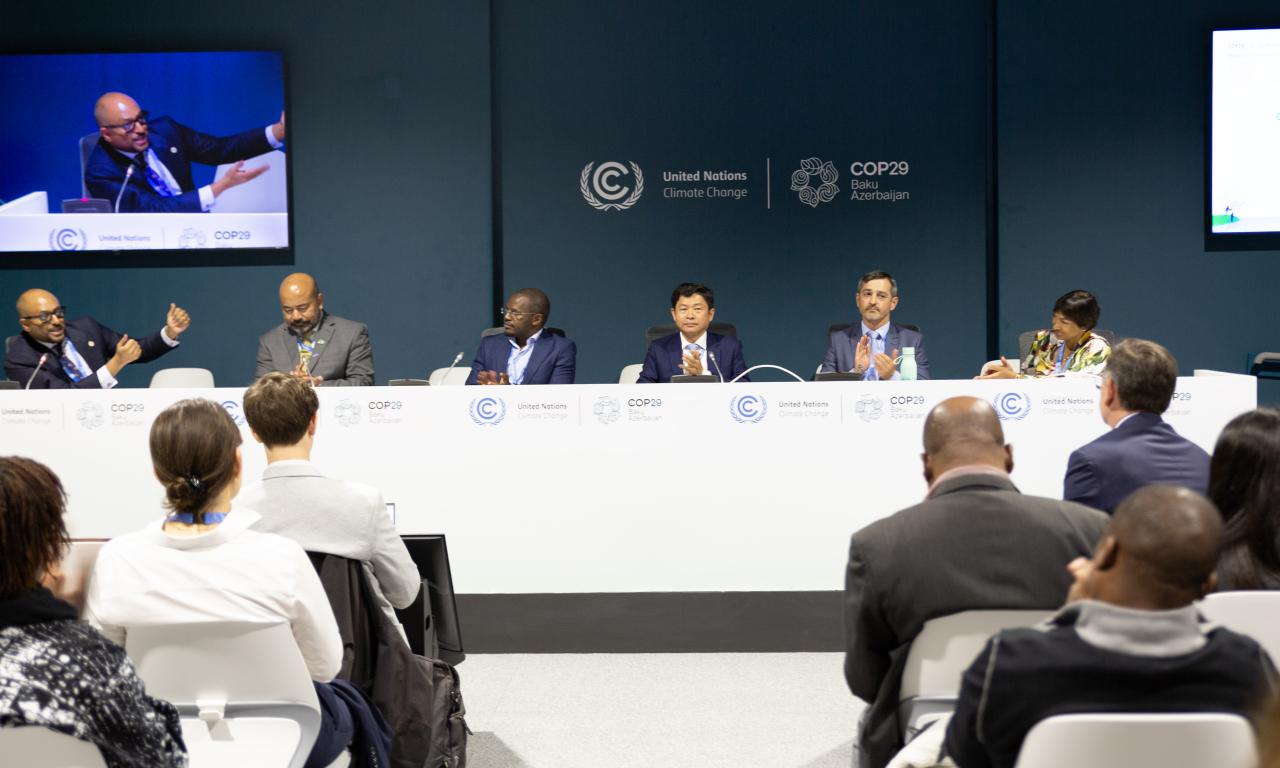
Over the past few years, the role of aquatic foods in climate solutions has often been overlooked. This is changing, however, with new interest in their potential to help tackle the climate crisis. This event put the spotlight on aquatic foods as a vital tool in the toolbox of nature-based solutions by discussing ways in which they can be integrated in a country's climate strategies.
Essam Yassin Mohammed, Director General, WorldFish, moderated the event. In her opening remarks, Ismahane Elouafi, Executive Managing Director, CGIAR, emphasized the “tremendous potential” of including aquatic foods as part of climate strategies. She discussed ways to achieve this, such as: scaling up innovation to enhance resilience; pairing policy action with financial investment; including fisheries management in Nationally Determined Contributions (NDCs) and National Action Plans; implementing the World Trade Organization Agreement on Fisheries Subsidies; and developing climate-smart aquaculture systems.
Kristin Kleisner, Environmental Defense Fund (EDF), set the scene by outlining the dire impact of climate change on aquatic food systems and current threats, such as effects on food production and supply chains, ocean acidification, and food security. The result, she warned, is contributing to increasing inequalities in the world today. She shared EDF’s and its partners’ report on Integrating Blue Foods Into National Climate Strategies, which provides policy guidelines on five key areas: developing sustainable fisheries management; improving aquaculture production; strengthening blue food supply chains; changing consumption patterns and diets; and implementing sustainable blue carbon habitats.